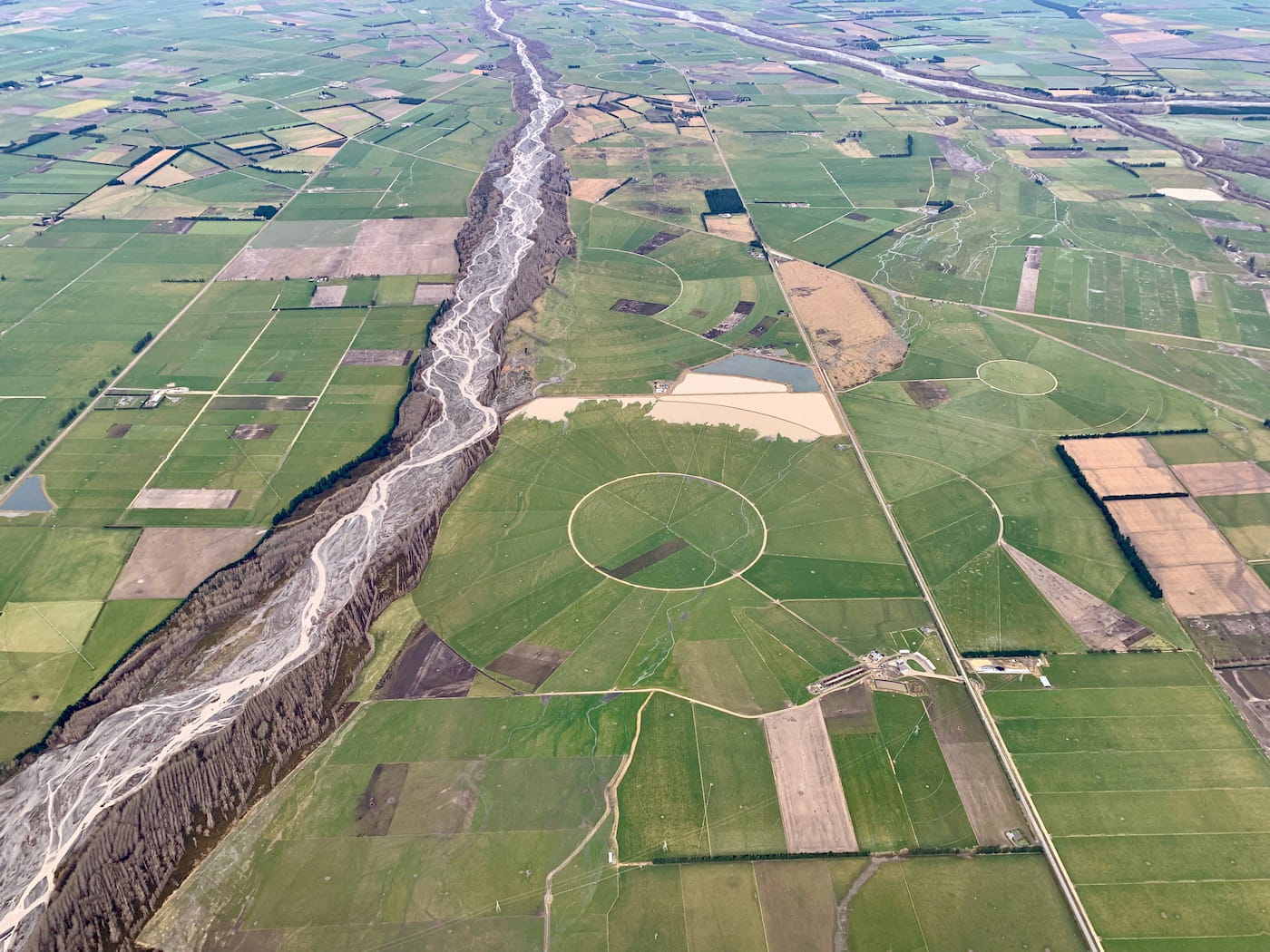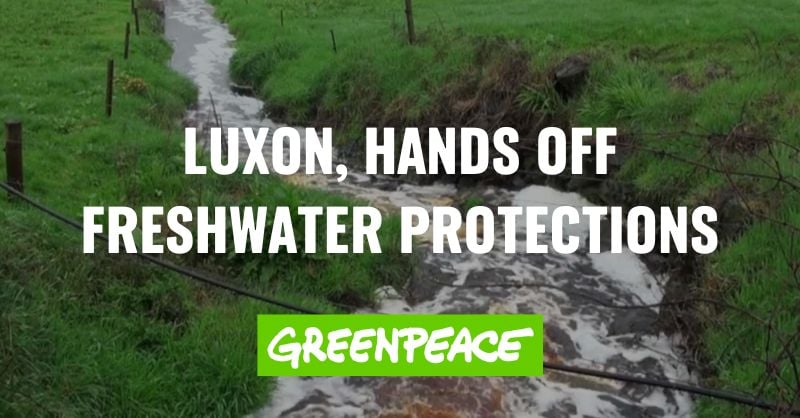Tired of being told your dogs might die if you take them down to the river? Greenpeace is warning there’ll be lots more toxic algal blooms afflicting South Canterbury rivers if a controversial irrigation scheme to expand dairying goes ahead.
The Canterbury District Health Board has issued a notice directing people to avoid ten lakes and rivers with potentially toxic algal blooms. Nearly half of them are in South Canterbury.
Greenpeace campaigner Genevieve Toop says, “The proposed Hunter Downs Irrigation scheme will take huge amounts of water from the Waitaki river to irrigate pasture and drive more conversions to industrial dairying“
“There are already too many dairy cows in New Zealand for our waterways to cope with and building think-big irrigation schemes to add more cows will only mean more pollution and algal blooms in our lakes and rivers.”
Algal bloom growth is driven largely by nitrogen and phosphorus pollution and Hunter Downs has been given consent to release at least 350 tonnes more nitrogen into local waterways every year.
A NIWA report into the environmental effects of this irrigation scheme stated that concentrations of inorganic nitrogen and phosphorous in surface waters could double.
Toop says, “Nitrogen rich cow urine from overstocked dairy farms seeps into our waterways and pollutes them, and that kind of pollution cannot be mitigated by fences and riverside planting. The solution is simple, we need less dairy cows.”
According to the company’s website the scheme was first proposed 17 years ago and has been dragged through the courts and has now undergone several design changes. It has needed over 7 million taxpayer dollars from the Government just to get this far.
Toop says ”This irrigation scheme has been limping along for 17 years and with the public outrage around the state of our waterways growing, it’s time to call it quits.”
Greenpeace rejects the company’s outrageous claim that the scheme will have environmental benefits:
“For a company to ignore NIWA scientists conclusions that their irrigation scheme will cause huge environmental damage and instead assert to the public that it’s actually going to be good for our environment is laughable.”
ENDS



